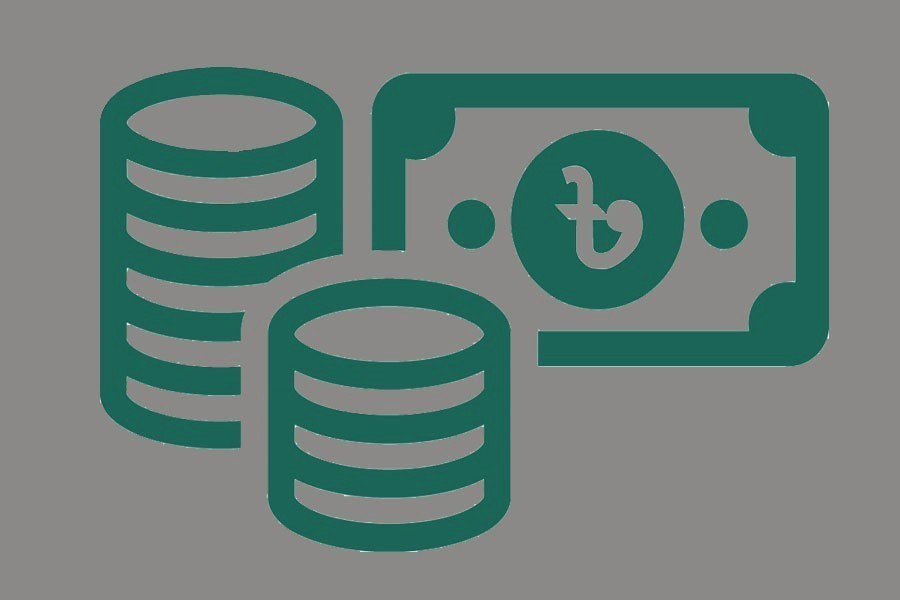The central bank may launch its half-yearly monetary policy stances for Bangladesh for H2 of this fiscal year on January 15, amidst skepticism on its efficacy with capped interest regime in place.
The Bangladesh Bank high-ups will meet with leading economists and other stakeholders today (Saturday) at a hotel in Gulshan area. This is the last meeting with external people. Bangladesh Bank Governor Abdur Rouf Talukder will preside.
But the BB will finalise its tactics on the local BDT at its 9-member MPC (monetary policy committee) meeting to be held on January 11. It will also place its stances before launching at its board meeting to be held on January 12.
"We're expecting to place the monetary stance for the January-June period on January 15 at 3:00 pm at the central bank's HQ," says a senior official having director knowledge on the development.
He says the BB has just listened to people's views and will finalize all at its MPC meeting.
So far, the central bank has met with the local think-tanks and others on the monetary policy statement in the making as this is very much crucial in the event of ongoing higher inflation, a number of banking scams as well global uncertainty stemming from the war in Ukraine.
Financial economists say the monetary stances will not be effective under the present fixed-interest-rate regime. But they argue that such policy stances are required in the sense that it will impact "inflation expectation".
Dr Mustafa K Mujeri, executive director at the Institute for Inclusive Finance and Development (InM), says, "Our monetary policy is not fully effective as the interest rate is not flexible."
Dr Mujeri, who was once chief economist at Bangladesh Bank, however, feels that this is important as it will give some signal on the inflation expectation.
The monetary policy usually becomes short-term as it addresses the changes on the financial market, he told the FE.
He also pointed out that the macro-economy has now many problems, for example, poor banking governance. "Could the monetary policy address it?"
The economist also finds Bangladesh's market not efficient or perfect for full effectiveness of the monetary policy.
On the half-yearly monetary stances, Mr Mujeri says short-term monetary policy can better address the changes on the financial market, both at home and abroad.
"As long as the Bangladesh Bank pursues fixed lending and deposit rates, no policy will be effective," says Dr Ahsan H. Mansur, executive director of the Policy Research Institute of Bangladesh (PRI).
"Actually monetary-policy transmission will not work under the existing cap."
The economic-policy analyst, however, feels that the January MPS should have been a "tighter stance" which he believes the central bank has been pursuing especially after fast depleting of the foreign-exchange reserves.
The local currency, BDT, shed nearly 23-percent value against the soaring dollar in a year ending January 04, 2023. The foreign-exchange reserves also decreased over 24 per cent during the same period. Dhaka smoothed out the reserves by tightening imports.
Dr Mansur mentions that the inflation remained higher and that to contain it the central bank should pursue "tighter stances".
The December headline inflation stood at 8.71 per cent on a point-to-point basis amid higher prices of imported items and transport and energy costs.
"To my mind, the central bank wants to withdraw the cap on another commercial lending, for example, the import financing and others".
The consumer lending cap has now been relaxed and the rates are now even 11-12 per cent.
Dr Zahid Hussain, a former lead economist of the World Bank, told the FE that the move is welcome as it will enhance the policy frequency.
"To my mind, this is important in the sense that the monetary authority is giving messages to the market about the changes in the economy."
He thinks monetary-policy transmission is now blocked by the rate capping and says it will not work effectively or reach its target unless the cap is withdrawn.
In the fiscal year 2019-2020, the central bank moved away from a twice-a-year policy statement to an annual statement.
In this past November, a delegation from the IMF, during its talks with the government on the latter's $4.5-billion loan plan, called for unveiling the monetary policy on a quarterly basis since the economic situation is changing frequently, at home and abroad.
jasimharoon@yahoo.com


